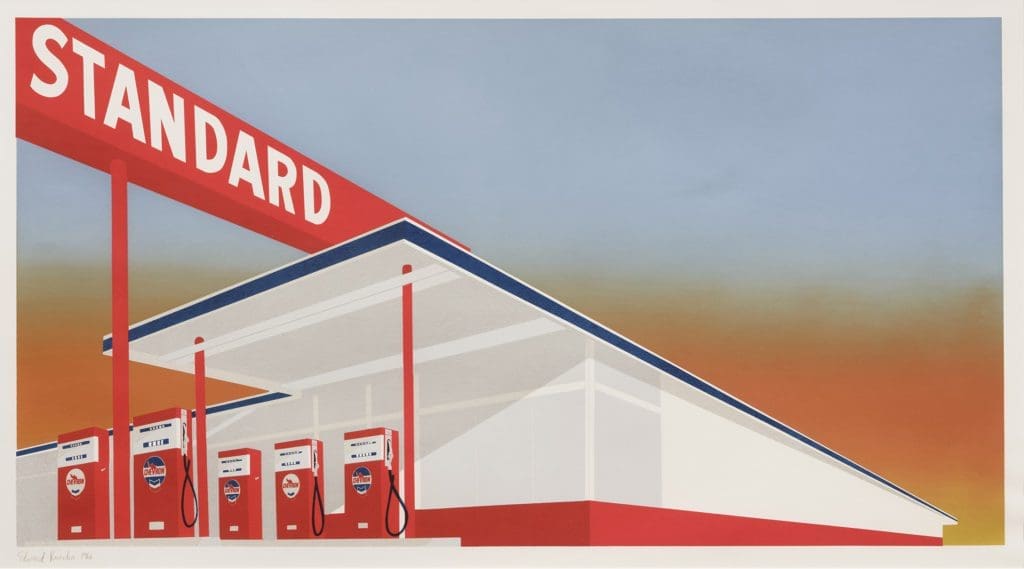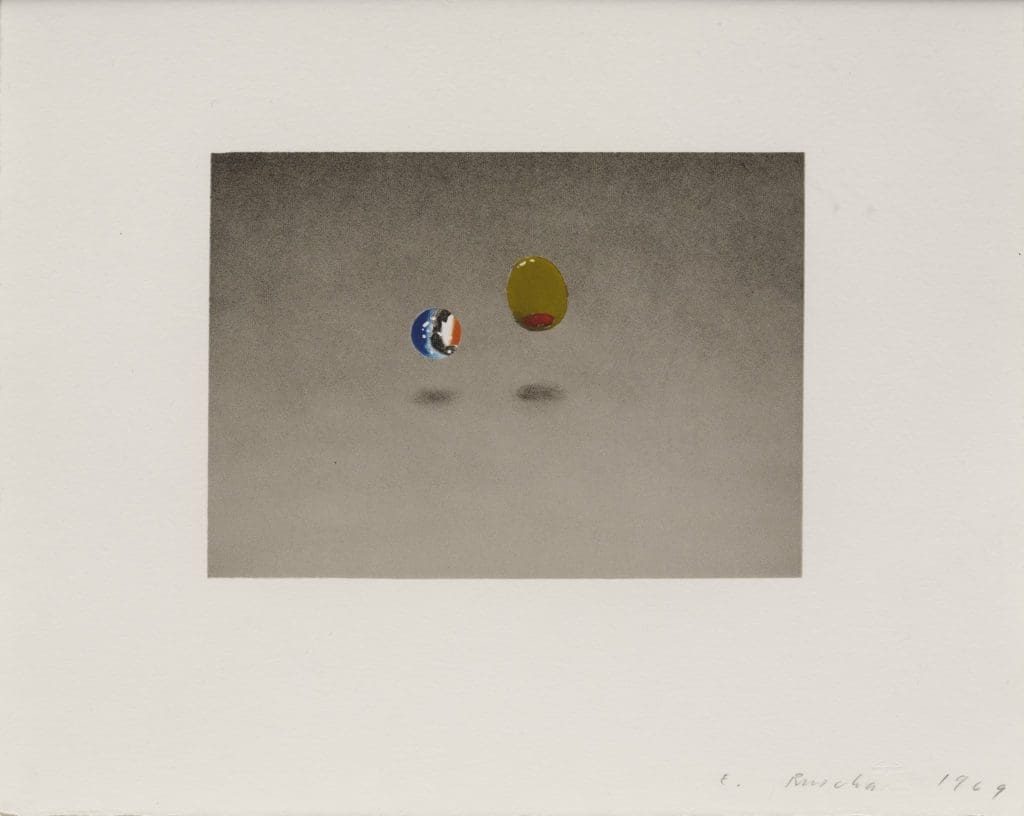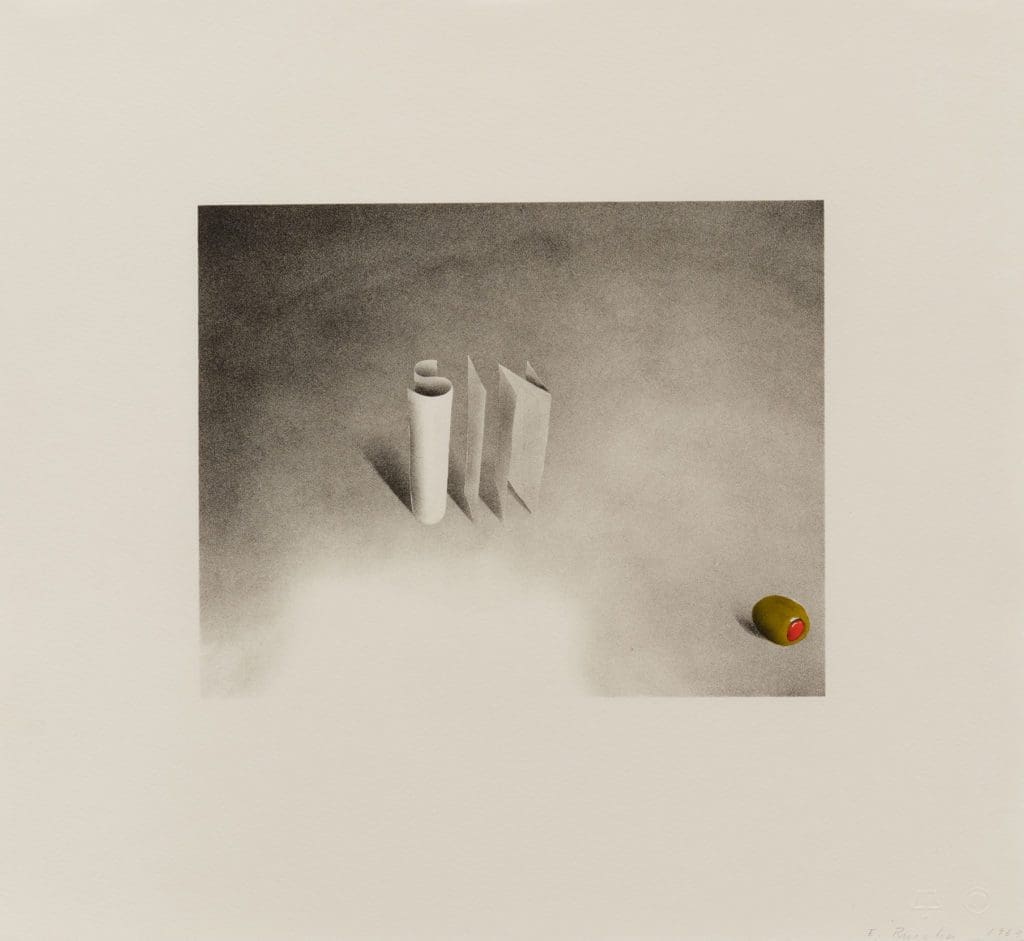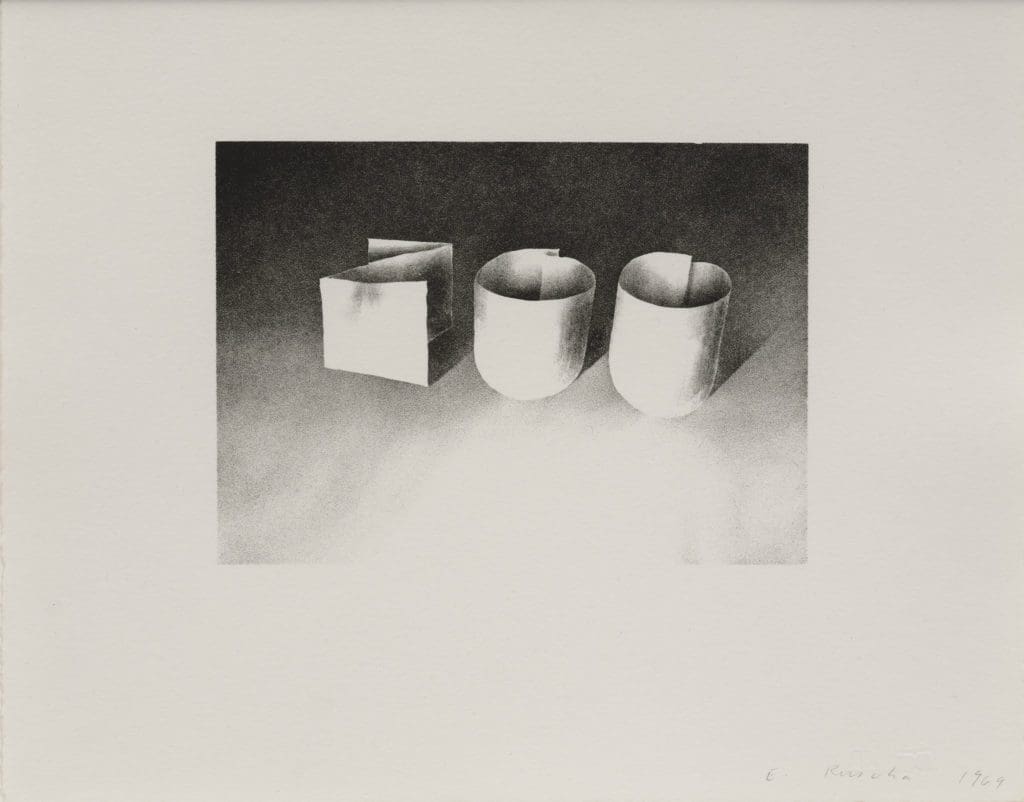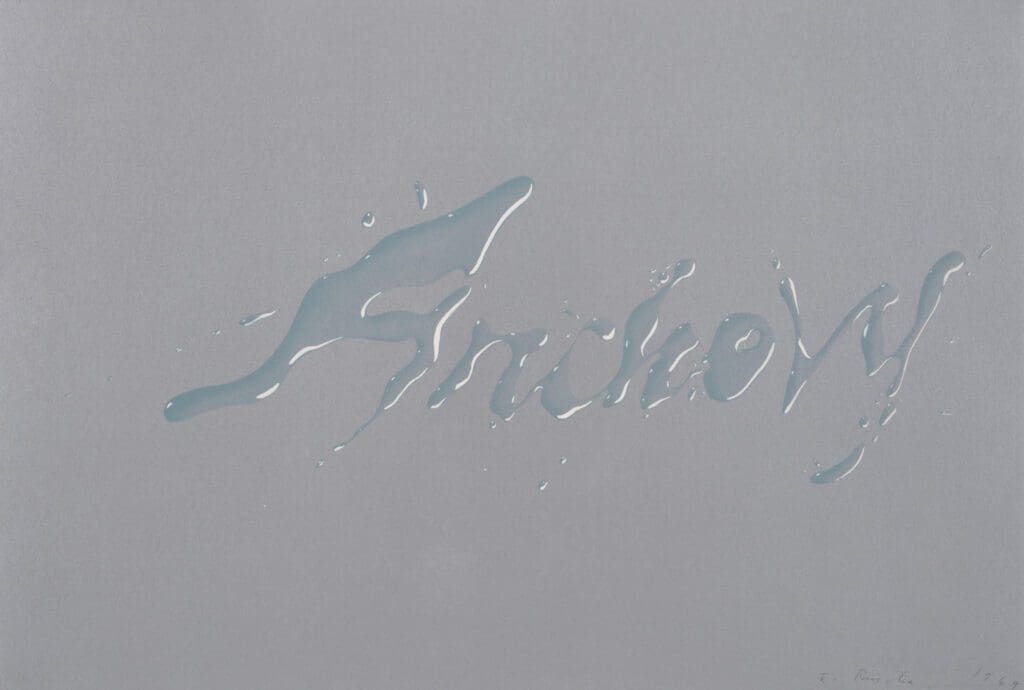Edward Ruscha Original Prints
About Edward Ruscha
Ruscha approached printmaking with a spirit of rigorous and restless experimentation, treating it as a fluid form to investigate how the technical processes of the graphic medium expand upon the themes that make up his broader oeuvre. Many of the prints Ruscha produced at Tamarind Lithography Workshop in the late 60s picture a single word, like the constructed paper in “Zoo”, or small, everyday objects, such as olives and marbles, that became trompe l’oeil props to disrupt the mental habits that define reading from examining illusion.
Edward Ruscha was born in Omaha, Nebraska in 1937. In 1956, Ruscha moved permanently to Los Angeles where he attended the Chouinard Art Institute. By the mid-sixties, the artist had published his first photography book, Twenty-Six Gasoline Stations , and had completed a series of paintings that displayed with great precision a single word against a flatly lit background.
Ruscha’s first solo exhibition was at the Ferus Gallery in 1963. In 1971, Ruscha produced his first film entitled Premium and continued work on his textual paintings. Some works include such figurative and verbal symbols as egg yolk, blood, and gunpowder. During the eighties, Ruscha executed a series of drawings incorporating vegetable pigment and depicting mysteriously cast light and phrases such as “99% DEVIL, 1% ANGEL.” In 1985, Ruscha executed his first public commission, a mural for the Miami Dade Public Library that displays the phrase “Words Without Thoughts Never to Heaven Go.”
In 1970, Ruscha represented the United States at the Venice Biennale as part of a survey of American printmaking with an on-site workshop. In 1982, The San Francisco Museum of Modern Art held a major solo exhibition of his work which traveled to the Whitney Museum of American Art, Vancouver Art Gallery,; San Antonio Museum of Art, and the Los Angeles County Museum of Art. Edward Ruscha: Editions 1959-1999, a major retrospective of the artist’s prints, books, and graphic works, which number well over 300, was mounted by the Walker Art Center. Ruscha has since represented the United States at the 51st Venice Biennale in 2005.


